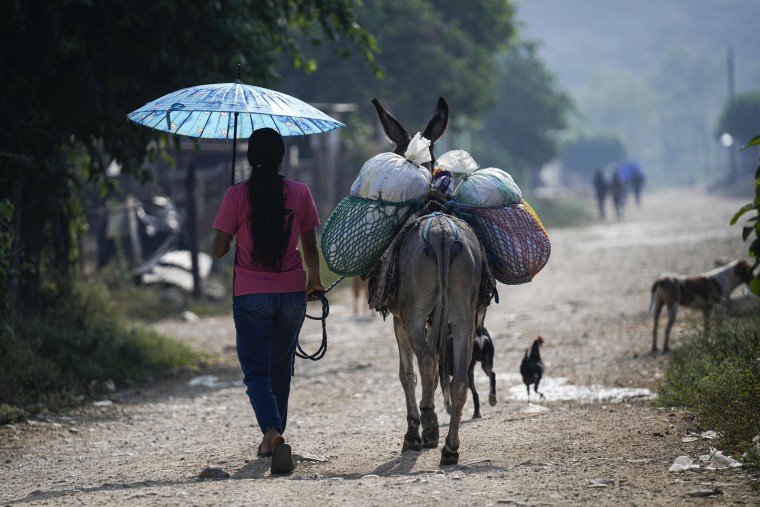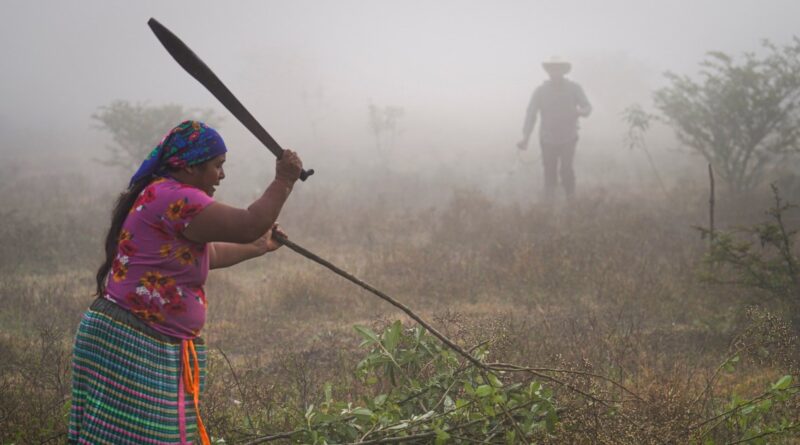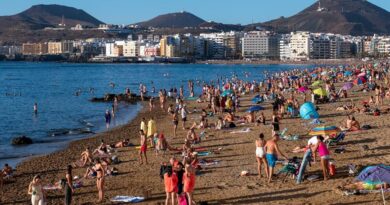A woman will likely be Mexico’s next president but in some Indigenous villages, men hold the power
Twelve days of fighting and years of negotiation culminated in 2001 with a constitutional amendment that recognized the right of Indigenous people to autonomous government; to preserve their languages, land and cultural identity; and to have access to basic rights such as health care and education.
This allowed many small Indigenous communities to govern themselves and choose their leaders without national political influence. It also meant that the federal government frequently looked the other way when those local customs contradicted basic rights like gender equality.
After the uprising, Indigenous women felt encouraged to fight for their rights in their communities. In some places they succeeded. But poverty and inequality persist in many Indigenous communities.
Juana Cruz, 51, is one of the women on a crusade to bring change. She grew up listening to stories of the abuses suffered by four generations of her family forced to work on an estate where they had to speak Spanish rather than their native Tojolabal, a Mayan-family language. She remembers being beaten in school for not speaking Spanish well.
Today she is one of the most veteran social activists in Las Margaritas, the municipality that includes Plan de Ayala, and director of Tzome Ixuk, which means “organized woman” in Tojolabal. Her collective accompanies victims of domestic violence to report crimes, organizes talks to hear communities’ needs, hosts workshops for men and women about gender rights, and teaches children Tojolabal. Political parties have approached her, she said, but she rejected their recruitment efforts — she wants to focus on organizing and educating in a politically independent environment.
“The ability that we have to decide is because we are not (affiliated) with any authority,” Cruz said.

Six years ago, the Zapatistas and other Indigenous groups elected María de Jesus Patricio, better known as Marichuy, to run for president as their first independent candidate. She faced intense racism and didn’t make it onto the ballot. “But she gave us strength,” Cruz said.
Cruz’s own activism stretches back to the Zapatista uprising, when she first heard about “organizing” for rights. In the mid-1990s, she demanded water, electricity, sewer and schools for an Indigenous neighborhood in Las Margaritas — demands that prompted dozens of men to attack her, she said.
She described politicians finding her demands unacceptable — they believed Indigenous people didn’t need such things.
‘Generation of Change’
Since Cruz and others made those basic demands, there’s been progress in places like Las Margaritas, a sprawling township of some 140,000 people spread across about 400 mostly Indigenous communities, including Plan de Ayala. Some people here were born on hugemassive estates where Indigenous workers were treated like slaves. Today, many get by with money sent from relatives who’ve made it to the United States.
Unwritten rules still govern much of life in the villages. Mexican law prohibits marriage until age 18, but many teens leave home years earlier and live as couples until they can legally wed. The community considers them married.
For some girls, it’s the only way to escape abusive homes — one 15-year-old described to The Associated Press how a relative beat her almost daily.




